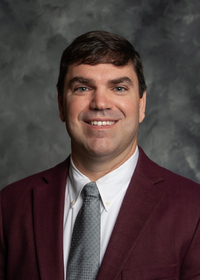Information Possibly Outdated
The information presented on this page was originally released on August 9, 1999. It may not be outdated, but please search our site for more current information. If you plan to quote or reference this information in a publication, please check with the Extension specialist or author before proceeding.
MSU Scientist Patents Soybean Food Process
By Rebekah Ray
MISSISSIPPI STATE -- "Would you like soybeans with that order?"
Asians have long appreciated the taste and benefits of soybean protein in their diets, but most Americans have not rushed to purchase soy products. One Mississippi State University researcher has increased Western acceptance of this healthful food by blending soybean protein with yogurt.
Mississippi Agricultural and Forestry Experiment Station food scientist Dr. MaryAnne Drake developed and patented a method for combining soy protein with the silky texture of traditional yogurt to make the vegetable protein more acceptable to Americans.
"Foods with soy protein have chalky textures and have been unacceptable to American consumers. By incorporating soy protein with the sensory qualities of traditional yogurt, consumers reap the benefits of both foods without forfeiting taste," Drake said.
Soy protein is a low-fat, low-cholesterol and low-sodium food. The beans are high in beneficial polyunsaturated fat and protein, and are cholesterol free.
Soyfoods include tofu, miso and tempeh, and are effective in reducing cholesterol, in treating kidney disease and may help ward off osteoporosis.
Consumption of soy protein in the United States is low despite its health benefits and most soy protein in the United States is used as animal feed, Drake said.
The U.S. food industry has begun researching the use of vegetable proteins such as soybeans in food formulations.
Drake's patented process will aid Mississippi soybean production, which garnered more than $2.9 billion last year. She received the 1999 Central Soya Researcher of the Year award for her research on soy protein applications.
Contact: Dr. Mary Anne Drake, (662) 325-7697


